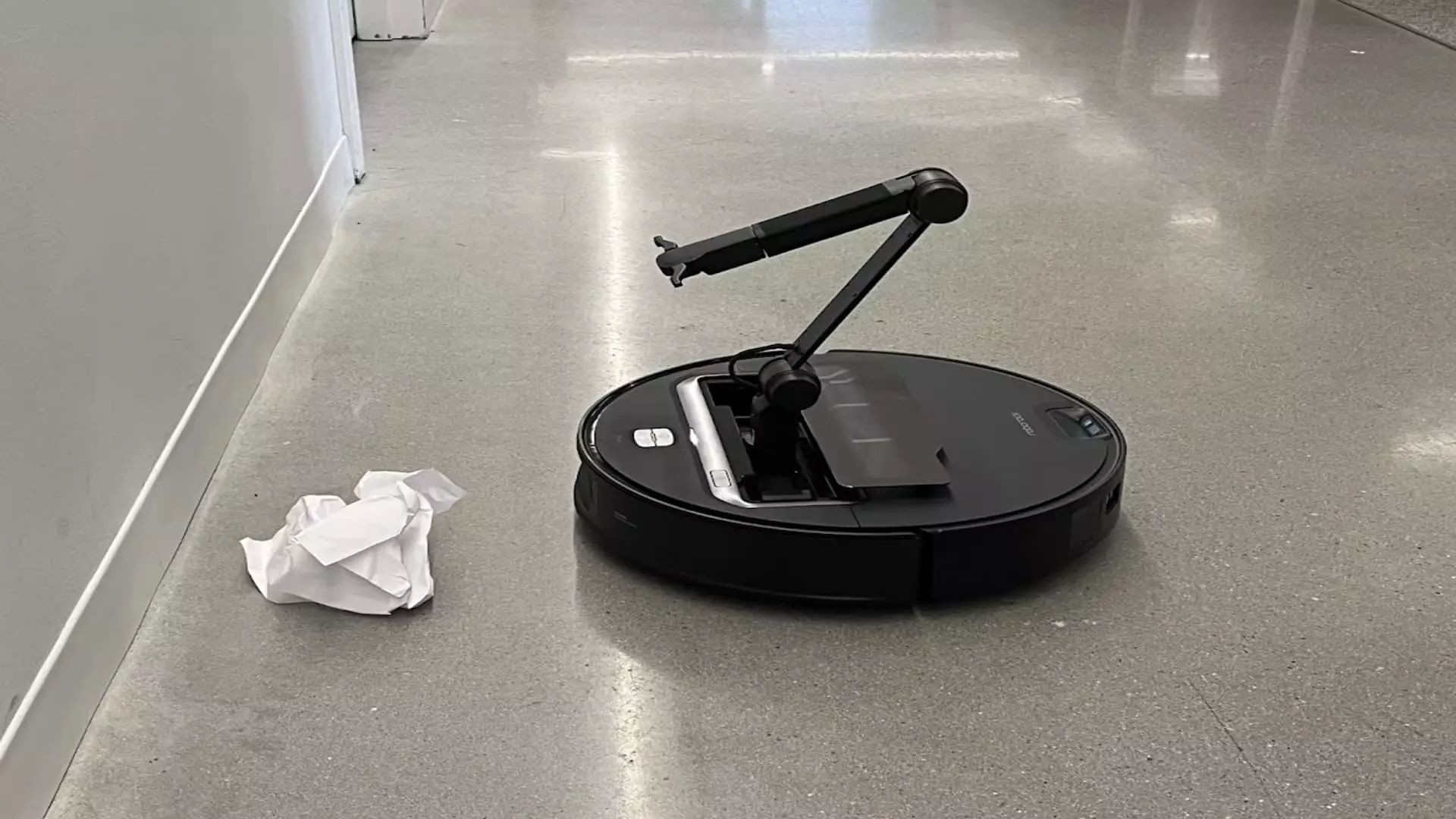In a striking announcement made early January 2025, Roborock, the Chinese manufacturer known for its advanced robot vacuum cleaners, has revealed a new model aimed at revolutionizing home cleaning. Their latest offering, the Roborock Saros Z70, comes equipped with an innovative folding arm designed specifically for removing common household obstacles such as socks and small towels. This leap in technology is not merely hardware improvement; it exemplifies the growing integration of artificial intelligence in everyday consumer products. As Roborock’s President, Quan Gang, suggested in a recent CNBC interview, the evolution of these devices could soon lead to their status as household essentials akin to washing machines—a transformation that might occur within the next three years.
The Saros Z70 is a hallmark of progress in the robotic cleaning sector, harnessing AI that can identify and interact with various household items weighing up to 300 grams. This feature is a testament to Roborock’s commitment to technological advancement, setting itself apart from competitors that merely replicate existing technologies. Quan believes that the burgeoning era of AI will catalyze the adoption and functionality of robot vacuums, making them pivotal to our daily lives—and his confidence hinges on the transformative potential that AI brings to such devices.
As these devices evolve, the implications for the household and the appliance industry as a whole are profound. The Saros Z70’s launch comes at a time when consumers are increasingly seeking devices that simplify daily chores, highlighting an urgent need for innovation in mundane tasks. Over the past decades, robot vacuums have transitioned from simple devices to multifaceted cleaning companions capable of mopping, navigating spaces intelligently, and autonomously managing their cleaning duties by returning to charging bases.
Market Context and Consumer Adoption Rates
Despite the technological advancements, robot vacuum market penetration remains relatively low, hovering just above 10% in developed nations and significantly lower in developing regions. This discrepancy represents both a hurdle and an opportunity for growth. As Quan noted, the integration of AI could significantly enhance consumer interest and market penetration. The potential of leveraging advanced technologies like lidar navigation systems—which allow devices to distinguish between different surfaces—is leading this movement.
According to recent reports, Roborock’s commitment to quality is being recognized. The Saros Z70 follows a lineage of other successful models, like the S8 MaxV Ultra and the Qrevo S, which have received accolades from respected publications for their capabilities. While Roborock dominates high-end the market, competitors like Ecovacs and iRobot have begun to gain traction, offering models that balance performance with affordability.
From a financial standpoint, Roborock continues to experience growth, with operating revenue seeing a year-on-year increase of 23.2% in the first three quarters of 2024. The company’s financial strategy is heavily focused on research and development, with 9.1% of revenue earmarked for this purpose—an increase from the previous years. The company has invested in a dedicated AI lab and research institute, indicating a strategic commitment to long-term innovation and competitiveness.
Nonetheless, the company faces challenges in scaling its research capabilities. With aspirations to expand its research team to 300 individuals, Roborock acknowledges the difficulties in securing qualified talent in a highly competitive market. As AI technologies evolve, attracting skilled professionals will be crucial in maintaining Roborock’s edge in the robotics industry.
Roborock is setting the stage for a transformative shift in the home cleaning market. With the Saros Z70, they are not only expediting the integration of AI into cleaning solutions but also nudging consumer habits towards accepting robotic assistance as a norm in households. As technology continues to progress at this pace, and if market penetration improves as predicted, the household of the future will likely feature robots we once considered futuristic. The dawn of AI-driven robotic cleaning has begun, and companies like Roborock are leading from the front, setting an aspirational trajectory for what home life could soon become.

